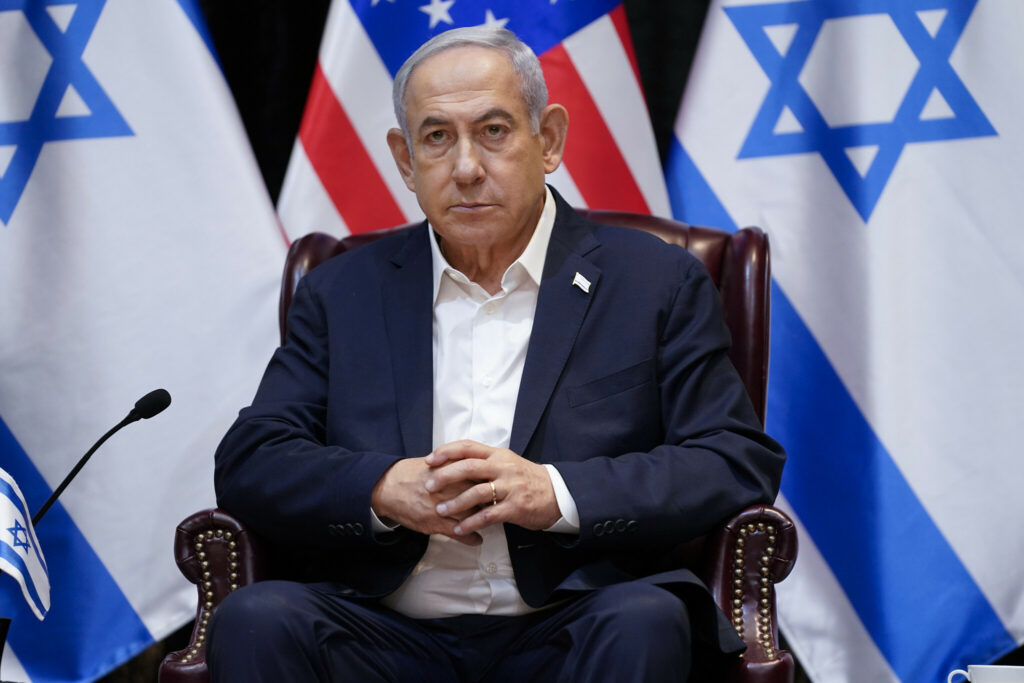CAIRO (AP) — Egypt, a central mediator, voiced skepticism on Wednesday regarding the cease-fire proposal aimed at easing tensions between Israel and Hamas, just a day before talks were set to continue in Cairo.
The issues surrounding the proposed plan seem to diminish hopes for a swift resolution that U.S. Secretary of State Antony Blinken had hoped to achieve during his recent visit to the region.
As diplomatic activities intensify amid fears of a broader regional conflict—sparked by Israel’s recent targeted killings of Hamas and Hezbollah leaders—President Joe Biden spoke with Israeli Prime Minister Benjamin Netanyahu on Wednesday, emphasizing the necessity of reaching a cease-fire and securing the release of hostages.
Egyptian officials, who occupy a unique position as both mediator and neighbor to Gaza, indicated that Hamas is unlikely to accept the proposal due to longstanding concerns about whether it would ensure the withdrawal of Israeli forces from Gaza and ultimately end the fighting.
An Egyptian official familiar with the negotiations noted that the proposal’s initial phase involves Hamas releasing vulnerable civilian hostages taken during its October 7 attack on Israel, without guarantees from either Israel or mediators for further negotiations. “The Americans are offering promises, not guarantees,” the official explained, adding that Hamas views this as an unacceptable condition.
The official also highlighted that the proposal fails to clearly state Israel’s plans for withdrawing from two key corridors in Gaza, namely the Philadelphi corridor and the Netzarim corridor. While Israel has suggested reducing its presence in the Philadelphi corridor, the ambiguity surrounding a complete withdrawal remains a sticking point.
A second Egyptian official, who is also informed about the latest negotiation updates, stated that the chances of a breakthrough are slim since Israel does not agree to a full withdrawal during the proposal’s second phase. Additionally, Israel insists on retaining its military presence in the Philadelphi corridor and controlling the Netzarim corridor.
Egypt has also communicated to the U.S. and Israel that it will not reopen the Rafah crossing into Gaza—vital for humanitarian aid—unless Israeli forces fully withdraw from the Palestinian side and the Philadelphi corridor.
Both Egyptian sources requested anonymity to discuss sensitive negotiations. Mediators are expected to convene again in Cairo on Thursday and Friday to discuss the proposal before officially presenting it to Hamas.
Hamas political figure Bassem Naim remarked on Tuesday that the proposal incorporates new demands from Netanyahu, including maintaining Israeli presence in Rafah, Philadelphi, and Netzarim while subjecting returning displaced Palestinians to searches.
Naim also mentioned that the proposal had adjustments related to the exchange of hostages and lacked assurances that a cease-fire would endure through the transitional phases.
Blinken, after visiting Egypt and visiting Qatar, stated that the proposal is “very clear on the schedule and locations for Israeli military withdrawals,” though specific details have yet to surface.
There is growing skepticism, alongside fatigue, in Israel regarding Netanyahu’s dedication to reaching a deal. Commentator Nadav Eyal expressed in Yedioth Ahronoth that without confidence in Netanyahu’s commitment, ongoing negotiations will struggle.
The ongoing conflict, now in its tenth month, has devastated Gaza, displacing most of its 2.3 million residents. Humanitarian organizations are alarmed about potential outbreaks of diseases like polio.
Following the October 7 Hamas attacks, which resulted in approximately 1,200 Israeli deaths, mostly civilians, ongoing hostilities have left Hamas holding around 110 hostages, with Israeli assessments suggesting that around a third may be deceased.
As tensions continue, Netanyahu recently visited northern Israel amidst rising conflicts along the border with Lebanon, declaring readiness for any scenario, both defensive and offensive.

